17 Home Remedies For Dry Mouth | Preventive Tips
There are other effective ways to moisten your mouth than just drinking water.

Image: Shutterstock
If you are looking for some home remedies to get relief from a dry mouth, you have come to the right page. Dry mouth, also known as hyposalivation or xerostomia develops when the salivary glands in your mouth don’t create enough saliva, leaving you with constant dryness in your mouth (1). While dehydration or old age maybe some of the common reasons, it may also be a side effect of taking medication or a symptom of an underlying medical disease. In this article, we explore some of the symptoms, causes, and a few natural remedies that can relieve your dry mouth.
In This Article
What Causes Dry Mouth?
This condition is a result of salivary gland dysfunction. There are many factors that can interfere with the functioning of these glands, and some of them are as follows (2).
- Medication: Being on medication increases the probability of developing a dry mouth. Many over-the-counter drugs, such as those used to treat depression and high blood pressure, have been known to cause dry mouth as a side effect.
- Aging: The body’s natural ability to function normally is altered with age. This, along with the consumption of various medications, leads to dry mouth in older people.
A study conducted on 14,286 Australians aged 15 and more found that more than 1 in 10 (13.2%) Australians experience xerostomia (dry mouth). It was further observed that the prevalence was 9.3% in participants between 15 to 34 and 26.% for those aged 75 years and above.
- Nerve Damage: There is an increased probability of nerve damage if you have been injured near your head or neck. This also applies if you have undergone any surgery near your head. Nerve damage can thus result in loss of functioning of your salivary glands, resulting in a dry mouth.
- Smoking: Though smoking doesn’t trigger it, it can aggravate the existing condition.
- Stress: Anxiety is often followed by stress, and this is one of the reasons for developing a dry mouth. Situations that result in tension and irritation also result in a dry mouth.
- Other Health Conditions: Dry mouth can also occur as a result of other health conditions such as fever or diabetes. It is a side effect of many diseases such as HIV/AIDS and Alzheimer’s disease. Dry mouth is also one of the most common symptoms of thyroid disease.
- Diabetes: High blood sugar levels may affect salivary gland function, causing reduced saliva production. It can lead to oral discomfort and dental issues and may cause difficulty in swallowing. Proper oral hygiene and diabetes management are essential for addressing dry mouth in people with diabetes.
- Pregnancy: Your body goes through many hormonal changes during pregnancy. In some cases, pregnant women have gestational diabetes as well. These factors often lead to a dry and raw mouth.
- Mouth Breathing: Breathing via the mouth, especially while sleeping, is another cause of dry mouth. This happens mainly at night, and the individual often wakes up to a sore throat and chapped lips in the morning.
Now that we are well of the causes that trigger a dry mouth, let us look at the symptoms that a dry mouth brings along.
Key Takeaways
- You may experience a dry mouth as a result of smoking, increased stress levels, a side effect of medications, or due to aging.
- The condition may exacerbate and result in a sore throat or bad breath.
- Have ginger tea, green tea, or aloe vera juice to alleviate this condition.
- Avoiding dry foods and breathing through your mouth might prevent you from having a dry mouth.
What Are The Symptoms Of Dry Mouth?
A dry mouth is often accompanied by a few symptoms. These include:
- A dry and raw feeling in the mouth
- Sore throat: A dry throat and a hoarse voice
- Thirst: Dry mouth and thirst go hand in hand. Dehydration is one of the main causes of dry mouth
- Dysphagia: Difficulty in speaking or swallowing (3)
- Decreased ability to taste
- Dry and chapped lips
- White tongue: Dry mouth leads to bacterial growth and fungal infection in the mouth. This results in a white tongue
- Pale gums
- Headaches: Dry mouth can be indicative of dehydration. Headaches are known to be triggered due to dehydration
- Bad breath: Dry mouth facilitates bacterial growth and this, in turn, causes bad breath
- Dry cough and dry nasal passage
- The corners of your mouth become dry. If you notice that a corner of your mouth is becoming dry, you can explore tips to prevent dry skin around the mouth. This will help you treat the dryness around your mouth and give you soft and soothing skin.
- The corners of your mouth become dry
- Sores and ulcers
- Bleeding of gums and decaying teeth
These symptoms are often mild to moderate and following some easy home remedies can help to eradicate them.
Note: Maintaining proper fluid intake is important for successfully managing the symptoms of dry mouth. Water consumption throughout the day promotes salivation, maintains general oral health, and lessens the discomfort associated with dry mouth. A water bottle can act as a reminder to drink often, particularly when it is hot or dry outside. Including hydrating foods in your diet, such as fruits and vegetables, can also help you meet your daily water intake.
Knowing how important hydration is can help us investigate and efficiently treat the underlying causes of dry mouth. Scroll down to know 17 more home remedies to get relief from dry mouth.
17 Best Home Remedies To Get Relief From Dry Mouth
As we know by now, a dry mouth can be very disturbing in the long run. However, following some easy home remedies may help to treat and prevent the recurrence of dry mouth and its symptoms (4).
1. Ginger
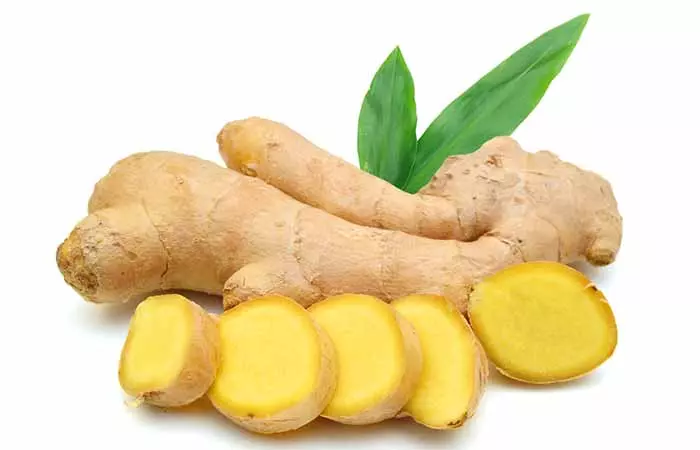
You Will Need
- 1 inch of ginger
- 1 cup of water
- Honey
What You Have To Do
- Take a small piece of fresh ginger and cut it into small pieces.
- Add this to a cup of water and bring it to a boil.
- Strain the ginger tea and add some honey to taste. Consume immediately.
- Alternatively, you can also chew on a piece of ginger throughout the day.
How Often You Should Do This
Drink ginger tea 2 to 3 times a day for best results.
Why This Works
Ginger has many medicinal benefits associated with it (5). This is due to the presence of a bioactive compound called gingerol. Other than this, ginger is also known to stimulate saliva. This can help in keeping your mouth fresh for a long period.
2. Green Tea

You Will Need
- 1 teaspoon of green tea leaves
- 1 cup of water
- Honey (optional)
What You Have To Do
- Take some green tea leaves and boil in a cup of water.
- Strain the tea and add honey to taste. Consume immediately.
How Often You Should Do This
Drink green tea 2 to 3 times a day for optimum benefits,
Why This Works
Green tea, like ginger tea, is also one of the best herbs to treat dry mouth. It is well known for its antibacterial properties and can prevent the formation of cavities in your mouth. In addition, green tea is also known to stimulate the flow of saliva (6).
3. Aloe Vera Juice
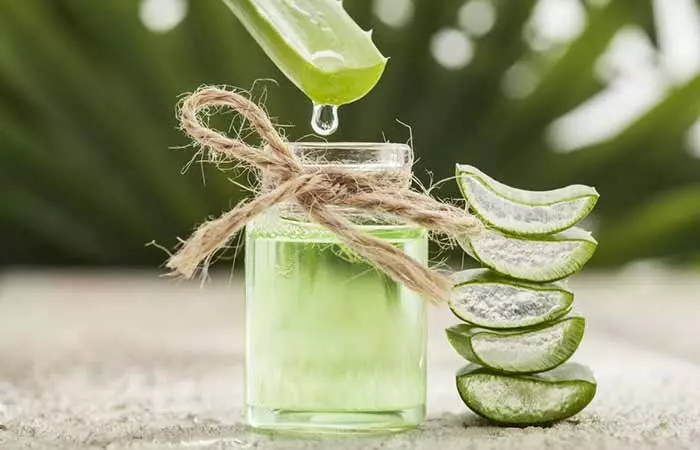
You Will Need
- ¼ cup of aloe vera juice/aloe vera gel
- Cotton pads
What You Have To Do
- Consume aloe vera juice or rinse your mouth with it.
- Alternatively, take some aloe vera gel on a cotton pad and apply it evenly inside your mouth.
- Leave this on for a few minutes and rinse your mouth thoroughly with water.
How Often You Should Do This
You can consume aloe vera juice once daily. In case you are applying the gel, you must do it 2 to 3 times a day.
Why This Works
Aloe vera has infinite benefits when it comes to beauty and health (7). It can trigger the functioning of the salivary glands and increase the production of saliva in your mouth (8).
 Quick Tip
Quick Tip4. Fennel
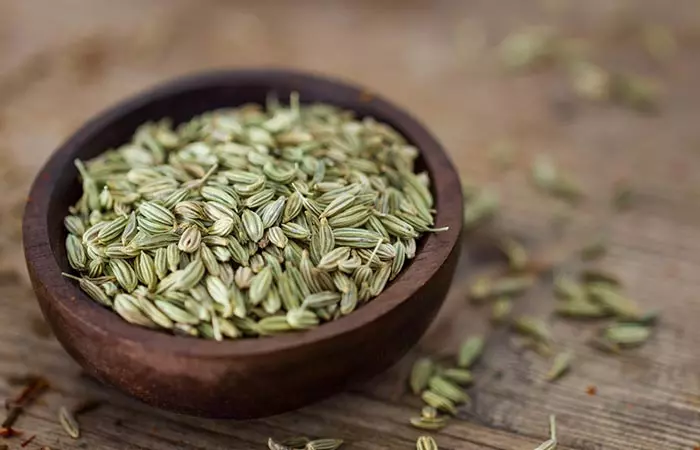
You Will Need
1 teaspoon of fennel seeds
What You Have To Do
Take some fennel seeds and chew on them after every meal.
How Often You Should Do This
Do this daily.
Why This Works
Fennel seeds are rich in a group of plant metabolites called flavonoids. Flavonoids help in stimulating the production of saliva and keeping your mouth clean. The aromatic nature of fennel seeds helps in keeping bad breath at bay while keeping your mouth fresh for a long period (9).
5. Aniseeds
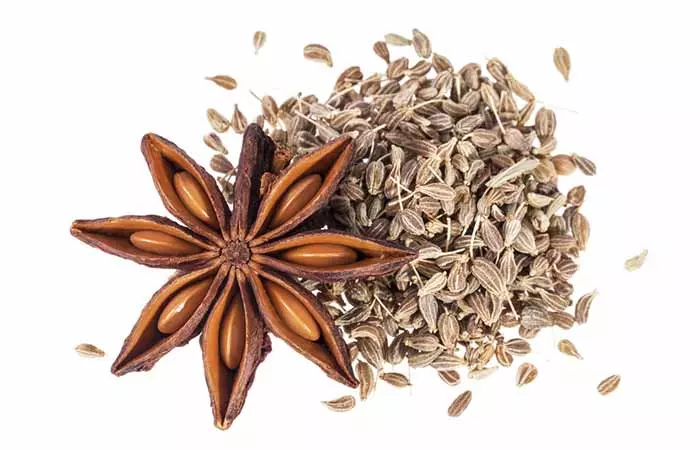
You Will Need
- 1 teaspoon of aniseeds
- 1 teaspoon of fennel seeds (optional)
What You Have To Do
- Take some aniseeds and munch on them after every meal.
- Alternatively, you can also mix aniseeds with fennel seeds for added flavor.
How Often You Should Do This
Do this after every meal.
Why This Works
Aniseed, scientifically referred to as Pimpinella anisum, is another herb with many medicinal properties
(10). It is often used as an appetite stimulant. It is licorice-flavored and helps fight bad breath and dry mouth.
6. Rosemary

You Will Need
- 10-12 rosemary leaves
- 1 glass of water
What You Have To Do
- Take about 10-12 leaves of rosemary in a glass of water and allow them to soak overnight.
- Use this water to rinse your mouth in the morning.
How Often You Should Do This
Do this every morning.
Why This Works
Rosemary has a wonderful aroma like fennel seeds. It is known for its antiseptic and soothing properties, which can be beneficial in treating dry mouth and its symptoms (11).
7. Celery
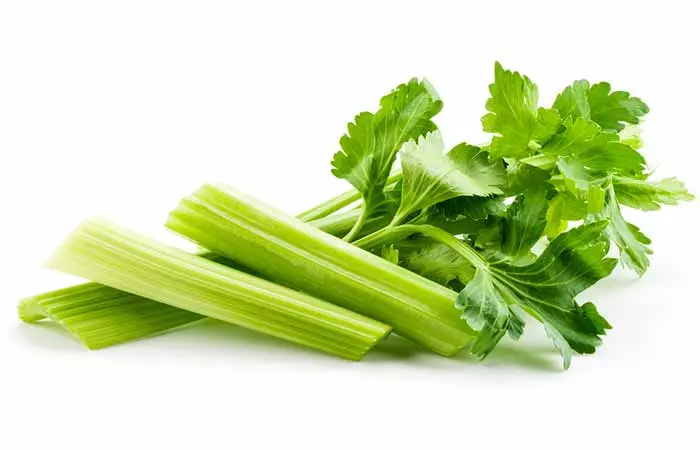
You Will Need
2-3 celery sticks
What You Have To Do
Cut some celery sticks and chew on them throughout the day.
How Often You Should Do This
Do this daily for optimum results.
Why This Works
Celery is a vegetable that has numerous health benefits. It is rich in vitamin C and also contains many beneficial enzymes and flavonoids (12), (13). The water retaining capacity of celery is especially helpful in keeping your mouth moist. It promotes hydration as well as increases saliva production.
8. Parsley
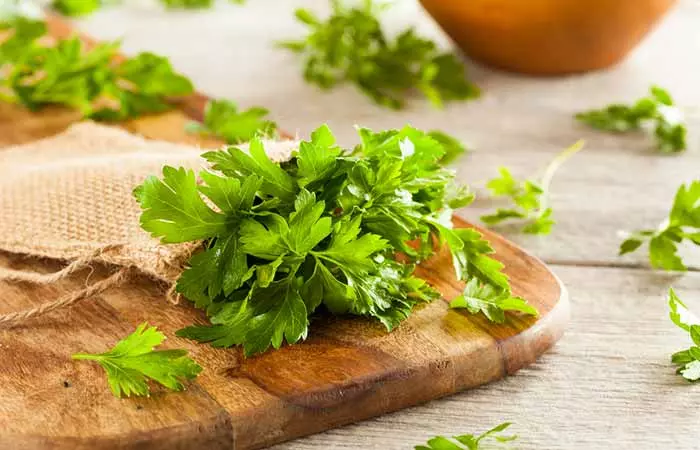
You Will Need
A handful of parsley leaves
What You Have To Do
Take some parsley leaves and chew on them.
How Often You Should Do This
Do this on a daily basis after every meal.
Why This Works
Parsley is another edible herb that is known to be rich in vitamins A and C, calcium, and iron. It is a natural mouth freshener and can keep bad breath at bay while also treating dry mouth and the associated symptoms (3.0.CO;2-6/full”>14). It also has antibacterial properties, which can be used to keep your mouth clean (15).
9. Oil Pulling
Oil pulling has been in use since ages to maintain oral hygiene (16), (17).
1. Olive Oil

You Will Need
1 teaspoon of olive oil (extra virgin)
What You Have To Do
- Swish olive oil in your mouth for 10 to 15 minutes
- Spit it out and brush your teeth as usual.
How Often You Should Do This
Follow this regimen once every morning.
Why This Works
Olive oil has anti-inflammatory and antioxidant properties. This is mainly due to the presence of a compound called oleocanthal. The cleansing effect of olive oil can keep your mouth moist and also treat the symptoms of dry mouth (18).
2. Coconut Oil
You Will Need
1 teaspoon of coconut oil (extra virgin)
What You Have To Do
- Swish coconut oil in your mouth for about 10 to 15 minutes.
- Spit the oil out and brush your teeth as usual.
How Often You Should Do This
Do this once every morning.
Why This Works
Like olive oil, coconut oil also helps in keeping your mouth moist. It acts as a natural moisturizer and can thus help to combat dry mouth and its symptoms (19).
10. Fish Oil
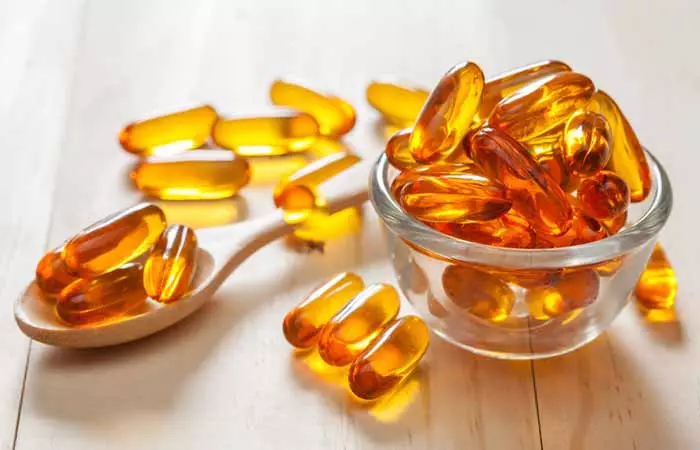
You Will Need
An omega-3 rich diet or fish oil supplements
What You Have To Do
- Include omega-3 rich foods like salmon and tuna in your diet.
- Alternatively, consume about 500 mg of fish oil supplements.
How Often You Should Do This
Do this twice daily for best results.
Why This Works
Fish oil is rich in omega-3 fatty acids that are known to decrease inflammation. Studies have proven that the intake of fish oil increases the production of saliva. Thus, fish oil can also be used to treat dry mouth and its symptoms (20).
11. Essential Oils
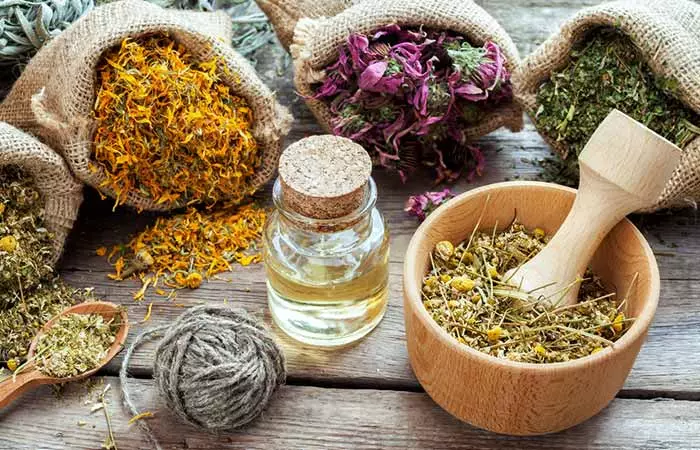
Essential oils are well known for their natural medicinal properties and healing effects (21). Some of the essential oils are also known to help with dry mouth and its symptoms. They are listed below:
1. Peppermint Essential Oil
You Will Need
2 drops of peppermint essential oil
What You Have To Do
- Pour two drops of peppermint essential oil on your tongue.
- Spread the oil to your entire mouth with your tongue.
How Often You Should Do This
Do this for a week, before every meal.
Why This Works
Peppermint oil, scientifically referred to as Mentha piperita, can be used to stimulate the salivary glands to produce more saliva. It also exhibits protective effects (22). The presence of a compound called 1, 8 cineole in peppermint oil helps in the acceleration of mucus secretion in the mouth.
2. Spearmint Essential Oil
You Will Need
1 to 2 drops of spearmint essential oil
What You Have To Do
- Take about one to two drops of spearmint oil on your toothbrush.
- Gently brush your entire mouth with it.
How Often You Should Do This
Use this as a mouthwash after every meal.
Why This Works
Spearmint oil is one of the main ingredients used in many toothpastes and mouthwashes. It comes from the same family as peppermint. Spearmint can help treat bad breath and dry mouth with its antibacterial and cleansing properties (23).
3. Clove Essential Oil
You Will Need
2 drops of clove essential oil
What You Have To Do
- Pour two drops of clove oil on your tongue.
- With the help of your tongue, spread the clove essential oil to the rest of your mouth.
How Often You Should Do This
Do this daily after every meal.
Why This Works
Clove oil contains beneficial oils such as eugenol. Eugenol is an aromatic compound and is also known for its anesthetic and antiseptic properties. These properties of clove oil help in treating dry mouth and its symptoms (24).
4. Eucalyptus Essential Oil
You Will Need
2 drops of eucalyptus essential oil
What You Have To Do
- Take two drops of eucalyptus essential oil on your finger or toothbrush.
- Rub this gently over your entire mouth.
How Often You Should Do This
Follow this regimen daily, after every meal.
Why This Works
Similar to peppermint oil, eucalyptus essential oil also has menthol in its constitution. The aromatic nature of eucalyptus essential oil, along with its antibacterial properties, helps in treating bad breath and dry mouth (25).
12. Apple Cider Vinegar
You Will Need
- 1 teaspoon of apple cider vinegar
- 1 glass of water
What You Have To Do
Add ACV to a glass of water and mix well. Sip on it throughout the day.
How Often You Should Do This
Follow this remedy daily.
Why This Works
Acetic acid is one of the main components of apple cider vinegar (ACV). ACV is well known for its antibacterial and antioxidant properties (26). It is often used to treat diabetes and is an effective remedy for treating dry mouth.
13. Vaseline
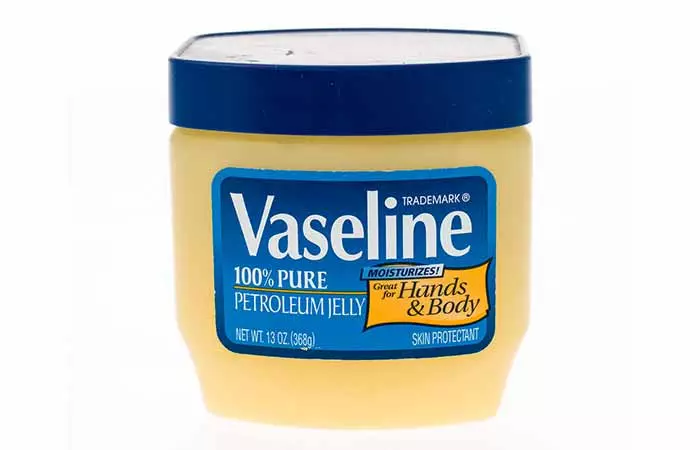
You Will Need
Vaseline
What You Have To Do
Apply a thin layer of Vaseline on the gums.
How Often You Should Do This
Do this daily before you go to bed.
Why This Works
Vaseline is mainly made up of petroleum jelly (petrolatum). It is used for faster healing of wounds and sealing in moisture (27). Vaseline can thus help in treating dry mouth, especially at night.
14. Yogurt
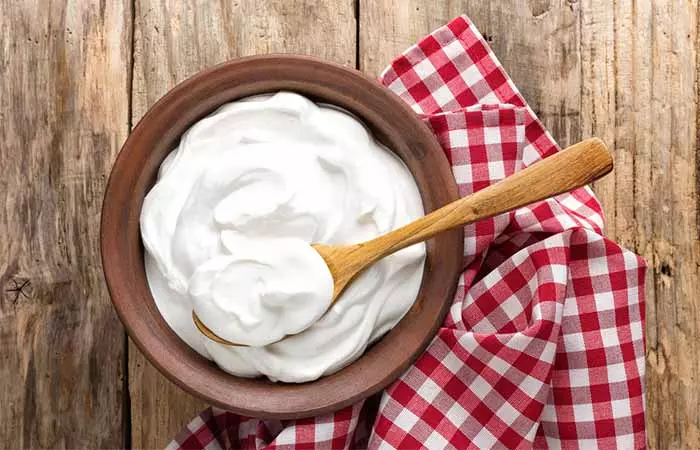
You Will Need
A bowl of yogurt
What You Have To Do
Have yogurt daily to create a thin layer over the mucosa in your mouth.
How Often You Should Do This
Do this 2-3 times daily.
Why This Works
Yogurt is rich in several nutrients and minerals. It also has moisturizing and anti-inflammatory properties similar to Vaseline, which can help in treating dry mouth and its symptoms (28).
15. Iron
You Will Need
Iron capsules
What You Have To Do
- Individuals above 50 years should consume about 8 mg of iron supplement per day.
- Those within 18 to 50 years can consume capsules containing 18 mg iron per day.
How Often You Should Do This
Consume this supplement daily.
Why This Works
Your body needs adequate iron to function and maintain your overall health. Dry mouth is one of the most common and recurrent symptoms of iron deficiency and can be treated by increasing your iron intake (29).
16. Cayenne Pepper
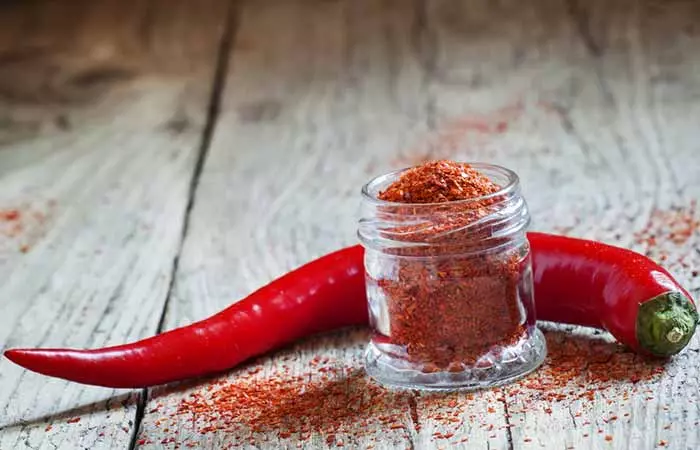
You Will Need
A pinch of ground cayenne pepper
What You Have To Do
Take ground cayenne pepper on your wet finger and rub it all over your tongue.
How Often You Should Do This
Do this 2 to 3 times a day.
Why This Works
Cayenne pepper, scientifically called Capsicum annuum ‘Cayenne’, is quite popular for its digestive and detoxifying properties (30). It is also known for its anti-inflammatory properties, which can be useful in treating the symptoms of dry mouth.
17. Slippery Elm
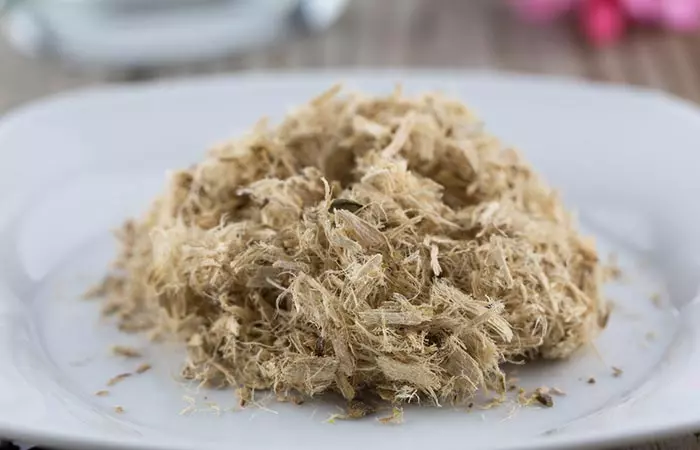
You Will Need
- ½ teaspoon of slippery elm bark powder
- Water
What You Have To Do
- Mix slippery elm bark powder with a few drops of water and gently rub the paste inside your mouth. Then, rinse your mouth.
- Alternatively, you can also consume slippery bark tea.
How Often You Should Do This
You can apply the paste every morning or consume this tea 2 to 3 times daily.
Why This Works
Slippery elm is a small tree with healing properties. The bark of this tree is often used for its medicinal properties. It contains mucilage that coats the stomach and soothes the stomach, throat, mouth, and intestines. Hence, it can help with digestion and inflammation (31). It can also treat dry mouth and its symptoms with its anti-inflammatory and antioxidant properties.
You can also try acupuncture to relieve dry mouth. It is a traditional Chinese medicine technique, which has shown promise in managing the condition. It stimulates nerves, enhances blood circulation, and promotes better saliva flow, providing relief for individuals struggling with dry mouth (32). It is especially beneficial for those undergoing radiation therapy or dealing with autoimmune disorders. However, it’s essential to consult a qualified practitioner before seeking any alternative treatment.
You can easily try these home remedies for dry mouth relief as most of the ingredients required are available in your kitchen. Once you see a positive change in your condition, you can also follow the preventive tips mentioned below to avoid the recurrence of dry mouth.
Preventive Tips
- Limit your intake of caffeine.
- Chew on sugar-free gums or suck on sugar-free candies.
- Avoid using mouthwashes that contain alcohol, as they can lead to further dryness. Consider using mouthwashes made especially for dry mouth and over-the-counter saliva substitutes for more relief.
- Quit smoking.
- Keep yourself well hydrated.
- Try using moisturizing sprays and gels that are available over-the-counter. These can act as saliva substitutes.
- Use mouthwashes especially formulated to combat dry mouth.
- Avoid use of medications that can be a potential cause of dry mouth.
- Avoid breathing through your mouth. Instead, practice breathing through your nose, especially at night.
- Use a room humidifier at night. This keeps the air around you moisturized.
- Avoid sugary and fizzy drinks.
- Start using fluoride toothpaste.
- Have a protein-rich diet. Also, include more soups and broth in your diet.
- Avoid consuming dry foods like bread, pastries, and crackers.
Moreover, you can choose products that contain xylitol, which can increase salivation and provide a cooling sensation to the mouth.
Samantha, a vlogger, talked about how she used probiotic lozenges recommended by her dentist to help manage her dry mouth, which was a symptom of Sjorgen’s Syndrome. She said, “These are lozenges that I use during the day. I found them helpful as well (i).”
 Quick Tip
Quick TipInfographic: 8 Effective Home Remedies For Dry Mouth
Dry mouth can be annoying and can lead to sore throat, chapped lips, headaches, bad breath, and even mouth ulcers. Various factors can cause dry mouth, and it can be detrimental to your oral health in the long run. But the good news is that it can be treated with medications and simple home remedies. Check out the infographic below for more details.

Illustration: StyleCraze Design Team
Dry mouth, or hyposalivation occurs when salivary glands in the mouth fail to produce enough saliva and leave the mouth dry. While dehydration, mouth breathing, smoking, or old age are all prevalent causes of a dry mouth, it can also result as a side effect of certain medications or indicate an underlying medical condition. This condition is characterized by symptoms such as a dry sensation in the mouth, a hoarse throat, trouble swallowing or speaking, a white tongue, headaches, and foul breath. Regular dental check-ups can also help prevent this from occurring. Along with increased water intake, simple home remedies for dry mouth, including ginger tea, chamomile tea, cinnamon tea, throat lozenges, sucking on ice chips, fennel seeds, rosemary, yogurt, petroleum jelly, and apple cider vinegar can be used instead of pharmaceuticals to treat this issue in most cases. Along with these, avoiding alcohol and caffeine and practicing breathing exercises can help fully remedy dry mouth.
Frequently Asked Questions
How can I get rid of dry mouth at night?
To prevent dry mouth in the night, use a room humidifier to moisturize the air. You can also apply a thin layer of Vaseline inside your mouth to seal in the moisture and avoid drying of your mouth.
What causes dry mouth while running?
One of the main causes of experiencing dry mouth while running is dehydration. Hot weather increases the chance of dehydration.
How can I prevent dry mouth when I wake up?
Once you wake up, brush your teeth with a fluoride toothpaste. Use any of the natural remedies mentioned above as your mouthwash. In addition, you can also use mouth sprays or gels that are meant to keep your mouth moisturized.
What kind of doctor should I see for dry mouth?
You can visit your dentist if you are facing dry mouth issues. However, if dry mouth is a symptom of an underlying medical condition, it is recommended to visit your general physician.
Can dry mouth have any serious side effects if left untreated?
A dry mouth can lead to severe tooth defects and inflamed gums if left untreated. It may also result in bad breath as a result of bacterial growth in your mouth.
Can a vitamin deficiency cause dry mouth?
Yes, a vitamin B6 deficiency can cause dry mouth (33).
Does lemon water help with dry mouth?
Yes, lemon water is an excellent natural remedy for dry mouth because of its citric acid content and sour flavor (34).
Is milk good for dry mouth?
Yes, people with dry mouths may find milk beneficial as a saliva substitute to help reduce oral health issues related to hyposalivation. This is because milk has anticariogenic (prevent tooth decay) and moisturizing properties (35).
Illustration: Home Remedies For Dry Mouth | Preventive Tips
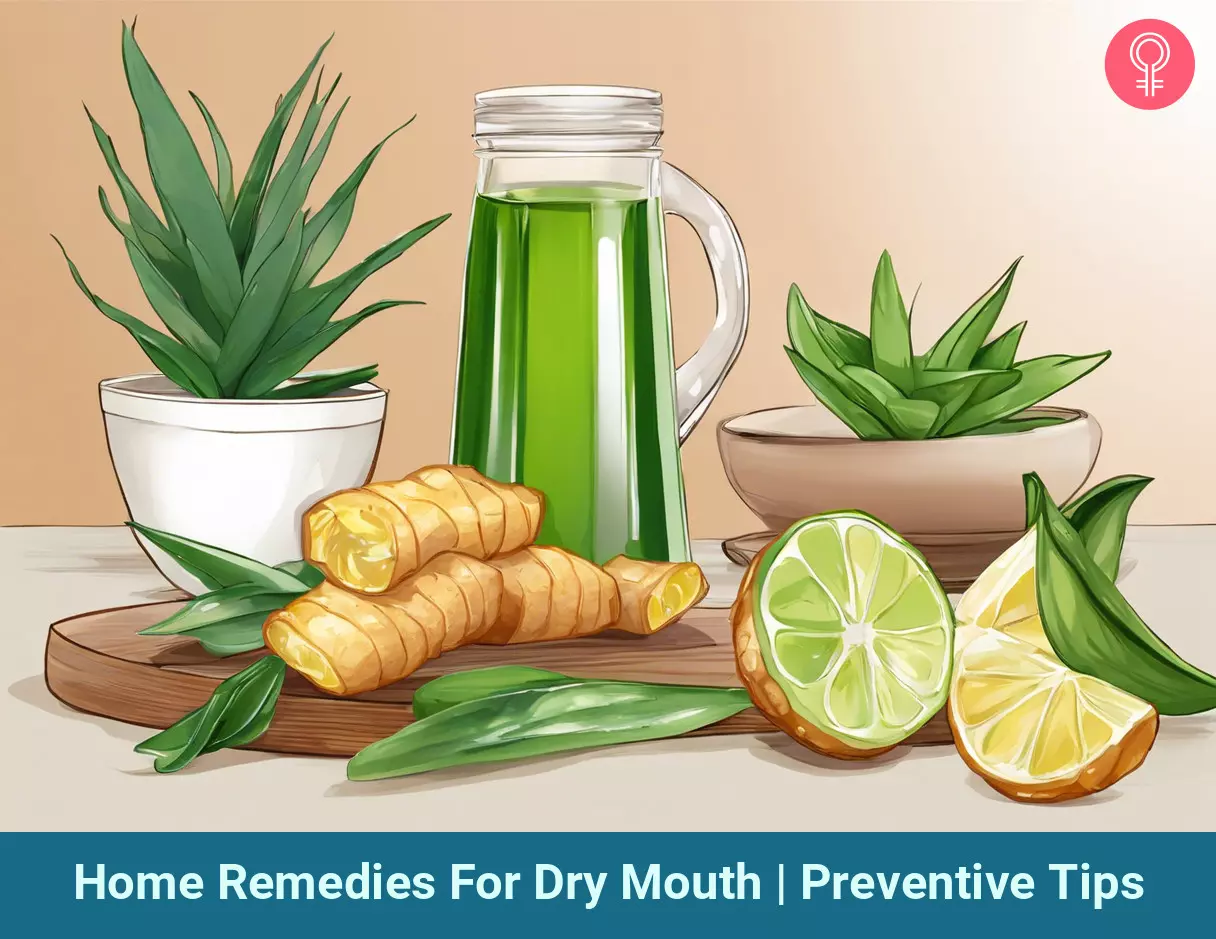
Image: Stable Diffusion/StyleCraze Design Team
A dry mouth can be uncomfortable and can potentially lead to other health issues. Watch this video to learn about the causes, symptoms, treatments, and prevention of dry mouth.
Personal Experience: Source
StyleCraze's articles are interwoven with authentic personal narratives that provide depth and resonance to our content. Below are the sources of the personal accounts referenced in this article.
i. Dry Mouth Relief | Sjogren’s Syndromehttps://www.youtube.com/watch?v=ucDP2ziG77c
Read full bio of Dr. Thomas Connelly
Read full bio of Shaheen Naser
Read full bio of Arshiya Syeda
Read full bio of Dipti Sharma





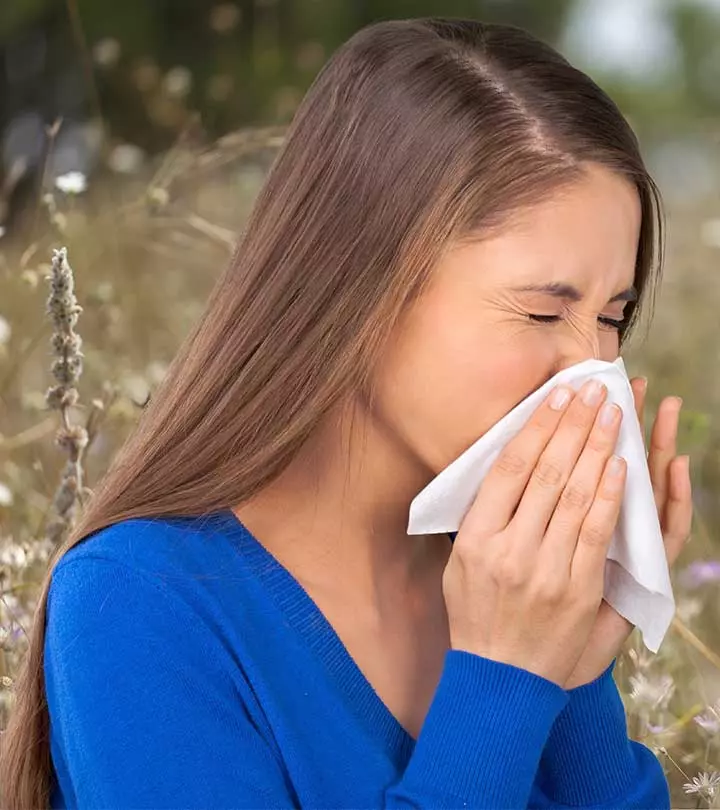

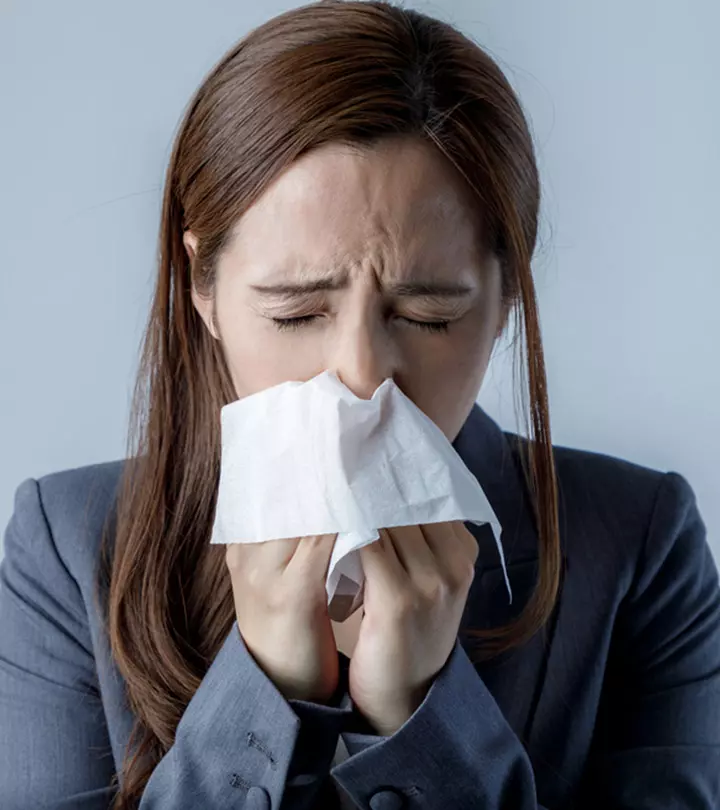


















Community Experiences
Join the conversation and become a part of our empowering community! Share your stories, experiences, and insights to connect with other beauty, lifestyle, and health enthusiasts.